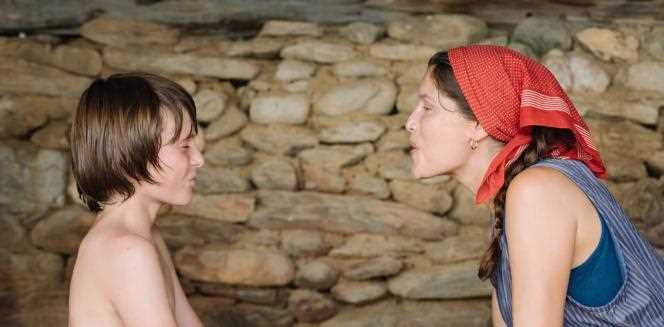THE OPINION OF THE “WORLD” – “TO SEE”
Damp clothes that stick to the skin, sweat beading on the foreheads, the horizon trembling under the effect of the heat, white light overwhelming the contrasts: the atmosphere is calm. It will not vary. Because the second feature film by Swiss director Delphine Lehericey, The middle of the horizon, brings us back during the heatwave of 1976, to a corner of the French countryside, where Nicole (Laetitia Casta), Jean (Thibaut Evrard), and their two children live.
The couple, who run a chicken farm, try to keep their heads above water. The corpses of poultry are multiplying every day, the temperature makes daily tasks more difficult, the tensions are accentuated. Something is threatening, preparing, which the film keeps at a distance, thanks to the innocent gaze through which the facts reach us. That of the young son, Gus (Luc Bruchez), 13 years old, for whom it is the beginning of the summer holidays.
An earthquake
He helps on the farm, travels the countryside by bike, awakens to sexuality and above all observes. He is the guide through whom we will discover the changes taking place in rural areas and the intimate upheavals facing adults. Starting with Nicole, who befriends Cécile (Clémence Poésy) and with whom she soon falls in love. Gus catches a kiss – an earthquake for him, but also for his family who will never be the same again. Like the agricultural world which is changing all around. Also like the little boy whose childhood will end with that summer.
Adapted from the novel by Lausanne writer Roland Buti, The middle of the horizon, shot in 35 mm, has the grain of old films to which the filmmaker adds the breath of the great outdoors. In this atmosphere that makes you feel the heat, the characters pitch, move forward and change throughout a story where the drama emerges. Which is restored to us in a vibrant way sometimes, diminished at other times, when the staging also seems to abandon itself to torpor. Deprived of rhythm, the film then weakens.
Belgian-Swiss film by Delphine Lehericey. With Laetitia Casta, Luc Bruchez, Clémence Poésy (1 h 32).
